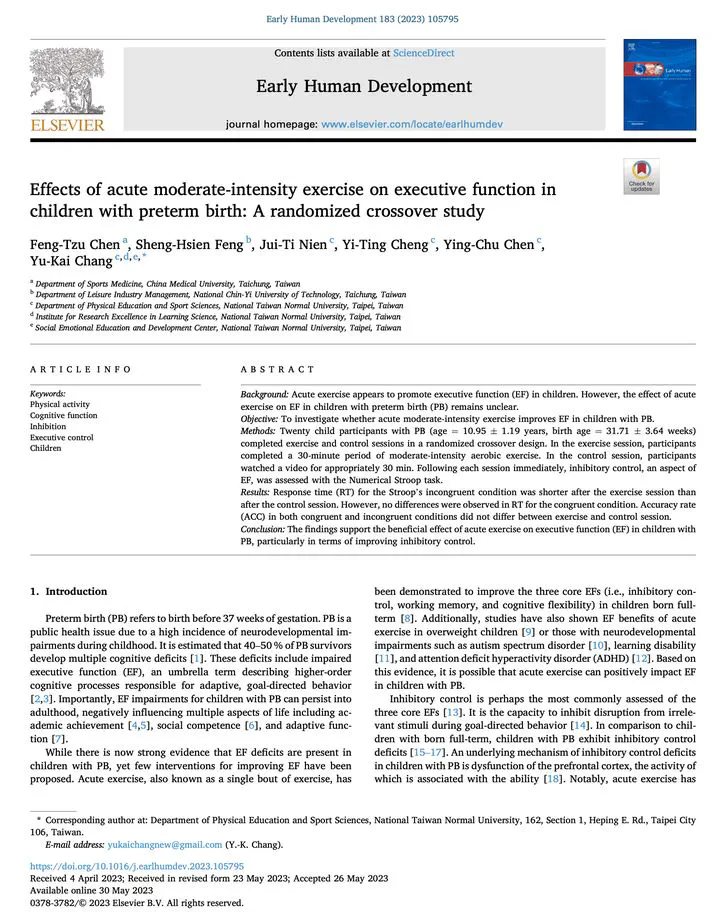Effects of acute moderate-intensity exercise on executive function in children with preterm birth: A randomized crossover study
May 30, 2023·
,
,
,
,
,
·
0 min read
Feng-Tzu Chen
Sheng-Hsien Feng
Jui-Ti Nien
Yi-Ting Cheng
Ying-Chu Chen
Yu-Kai Chang
 Image credit: Feng-Tzu Chen et al.
Image credit: Feng-Tzu Chen et al.
Abstract
Background: Acute exercise appears to promote executive function (EF) in children. However, the effect of acute exercise on EF in children with preterm birth (PB) remains unclear.
Objective: To investigate whether acute moderate-intensity exercise improves EF in children with PB.
Methods: Twenty children with PB (mean age = 10.95 ± 1.19 years; birth age = 31.71 ± 3.64 weeks) completed both an exercise session and a control session in a randomized crossover design. In the exercise session, participants performed 30 minutes of moderate-intensity aerobic exercise. In the control session, they watched a video of equivalent duration. Immediately following each session, inhibitory control—an aspect of EF—was assessed using the Numerical Stroop task.
Results: Response time (RT) in the incongruent condition of the Stroop task was significantly shorter after the exercise session compared to the control session, suggesting improved inhibitory control. No significant differences were observed in RT for the congruent condition or in accuracy for either condition.
Conclusion: A single session of moderate-intensity aerobic exercise has a beneficial effect on inhibitory control in children with PB. These results support acute exercise as a potential strategy to enhance executive function in this at-risk population.
Type
Publication
In Early Human Development